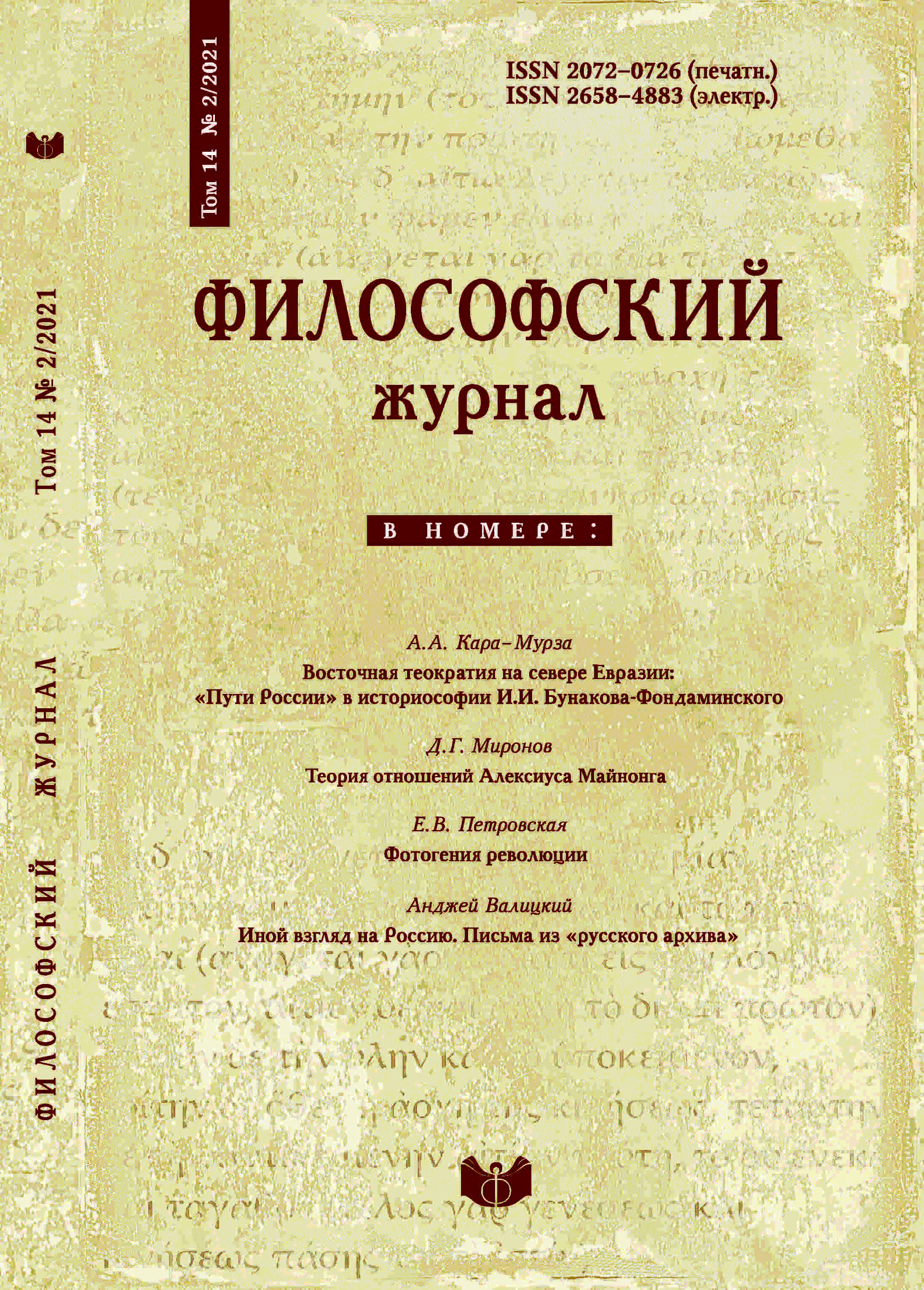“A turn to ontology” in neo-kantianism (P. Natorp and E. Lask)
DOI:
https://doi.org/10.21146/2072-0726-2021-14-2-51-65Keywords:
Neo-Kantianism, Paul Natorp, Emil Lask, epistemology, ontology, ontological turnAbstract
In the late 1910s and early 1920s, the intellectual situation within neo-Kantianism began to change: there were philosophical projects attempting to overcome the total domination of epistemology in Neo-Kantian doctrines and making place for ontology. Ontological tendencies are typical mainly for P. Natorps’s projects of general logic and E. Lask’s logic of philosophy. I analyze the continuity of Natorp’s early epistemological ideas, developed in the spirit of the Marburg interpretation of Kant’s transcendentalism, and his later ideas, focused on speculative ontological constructions. In particular, I investigate the methodological relationship between the characteristics of knowledge in his early and late philosophy: dynamism, creativity, categoriality, unity of the starting point and the goal. The basic structure of Natorps’s project of general logic is reconstructed. Lask’s main texts reveal the provisions that open the way to an ontological turn. These factors include a critique of the identification of the realm of value and that of the extrasensory in the metaphysics of the past, the postulation of a prereflexive stage of knowledge, interpreting the doctrine of judgment as a doctrine of immanent sense, and treating truth as a constitutive-aleteological phenomenon. Both Neo-Kantian philosophers build their systems on an ontological foundation, making subjectivity dependent on objectivity in cognition, which can be interpreted as a kind of retreat from Kantian criticism. The ontological basis is expressed in the postulation of a universal character of the logical expressed in Natorp’s idea of “poiesis” and Lask’s idea of “panarchy of the Logos”. The analysis of Natorp’s and Lask’s onto-epistemological projects allows us to clarify and reveal the role of Neo-Kantianism in the formation of the new ontologies of the 20th century a.k.a. the “ontological turn”.






